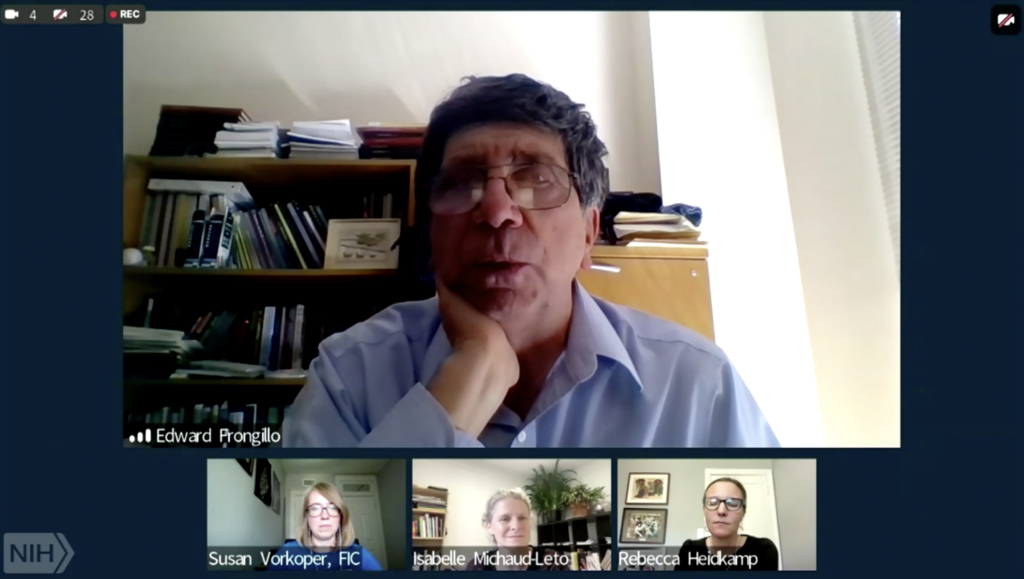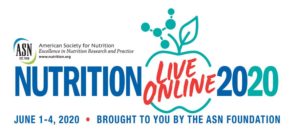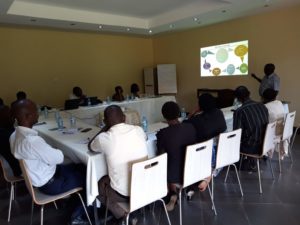Global Experts Convene to Examine Socio-Ecological Factors and the Double Burden of Malnutrition Among Children and Adolescents in Low- and Middle-Income Countries
On October 19th and 20th, 2022 over 400 attendees tuned in to a conference organized by Drs. Jenelle R. Walker and Vesna Kutlesic in the Office of Global Health at the Eunice Kennedy Shriver National Institute of Child Health and Human Development (NICHD). The purpose of the conference was to better understand recent etiological and socio-ecological factors contributing to the increased prevalence of the double burden of malnutrition (i.e., simultaneous manifestation of both undernutrition and overweight and obesity) and the implications for long-term health outcomes for children (age 3 to 18 years) in low- and middle-income countries. The conference focused on a holistic, multi-faceted approach as proposed by the Socio-Ecological Model by examining behavior changes for healthy eating and lifestyle practices; social determinants of health; double-duty approaches to interventions, programs, and policies; and implementation science. SISN was thrilled to be a part of Session V: Global Dissemination and Implementation Science during the second day of conference proceedings.
Susan Vorkoper, Global Health Research and Policy Analyst, from the Fogarty International Center at NIH, began the session by highlighting that several speakers earlier in the conference presented nutrition intervention research and that this session would dive into using implementation science to ensure that interventions are well-implemented at scale for optimal impact. She then introduced the three SISN team members who shared their expertise on implementation science and research in nutrition programs.
First, SISN President, Edward Frongillo, discussed challenges for addressing the double burden of malnutrition in adolescents and proposed that this can be achieved if 1) we have an in-depth understanding of how to implement actions well, 2) there is consensus in policy framing across countries and 3) there is standardized dietary data collection to bridge knowledge gaps and inform policy and actions.
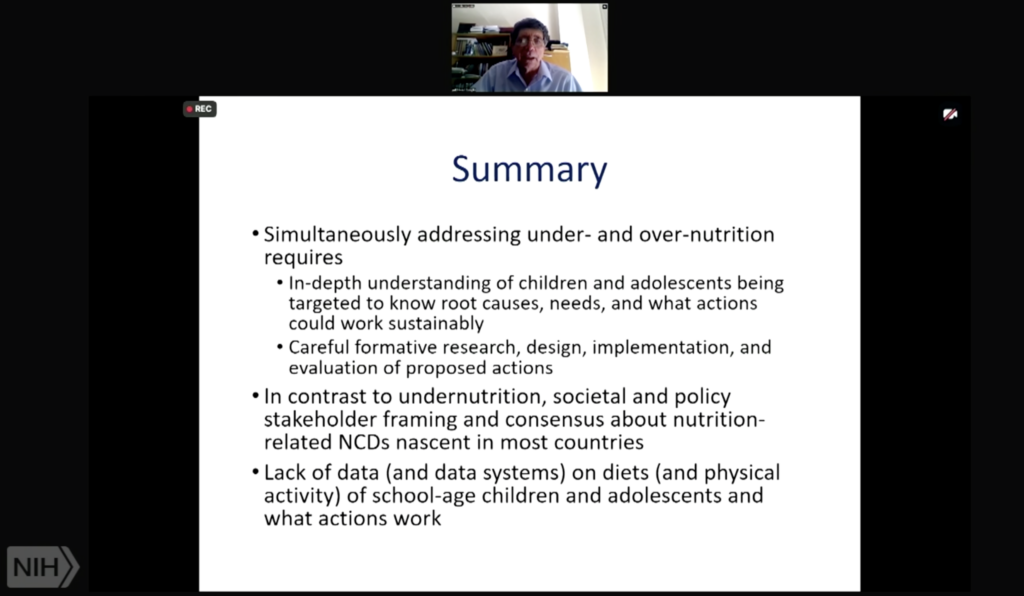
Second, SISN’s Senior Technical Advisor, Isabelle Michaud-Létourneau, built on the 10 double-duty actions presented on the first day by Prof Corinna Hawkes, Director, Centre for Food Policy at City, University of London, that refer to interventions, programs and policies that can simultaneously prevent or reduce the risk of both 1) nutritional deficiencies (leading to underweight, wasting, stunting and/or micronutrient deficiencies) and 2) problems of obesity /diet-related non communicable diseases. Isabelle highlighted that to date the implementation of those interventions have been hindered by challenges throughout the implementation process and in knowledge utilization.
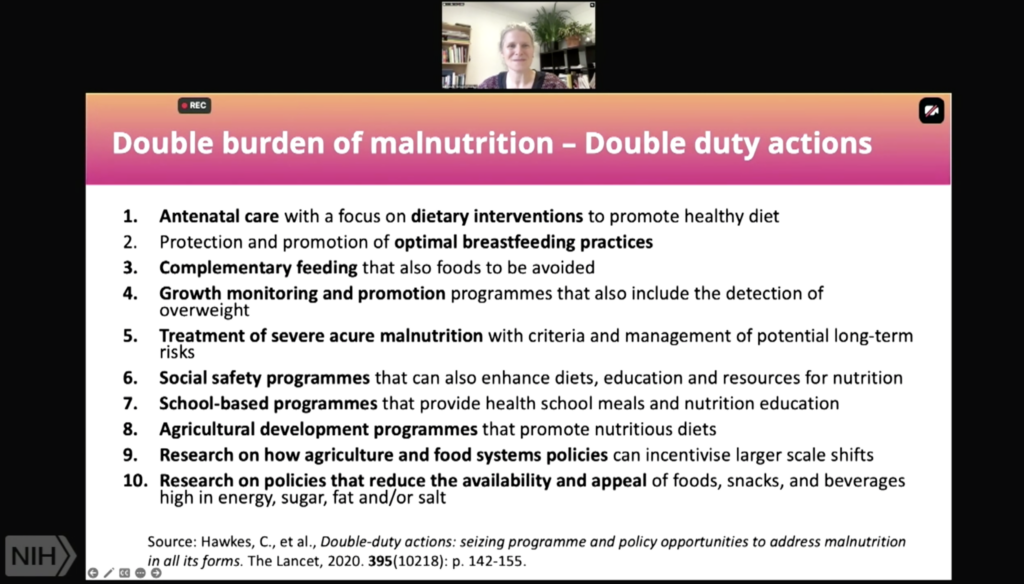
She demonstrated how the implementation of double duty actions could be strengthened by using SISN’s framework and the Implementation Science System Operational Model to examine various aspects of implementation. These analytical tools can help mobilize different forms of knowledge to identifying bottlenecks and potential solutions, and utilize knowledge brokering to lead to action.
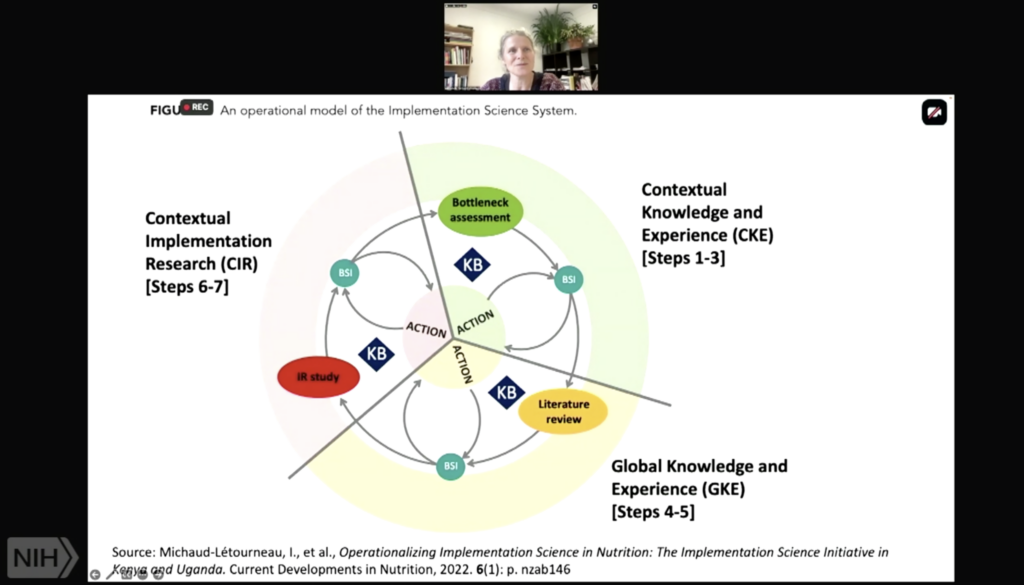
In closing her presentation, Isabelle shared, “My main key message is that research is very important but there is a lot of research out there. It is important to have a way to facilitate processes that link policy-makers, implementers and researchers together so that the research that we do is based on the knowledge we have and use the knowledge that we can already apply.”
The third speaker, SISN Vice President, Rebecca Heidkamp, focused on the importance of periodic and routine data (e.g., population-based surveys, administrative data) for monitoring of problems and the interventions addressing these problems in low- and middle-income countries. She offered global and country examples of how to strengthen early links of the nutrition data value chain, including how data are prioritized, defined, and collected to fill information gaps for 3-18 year old children.
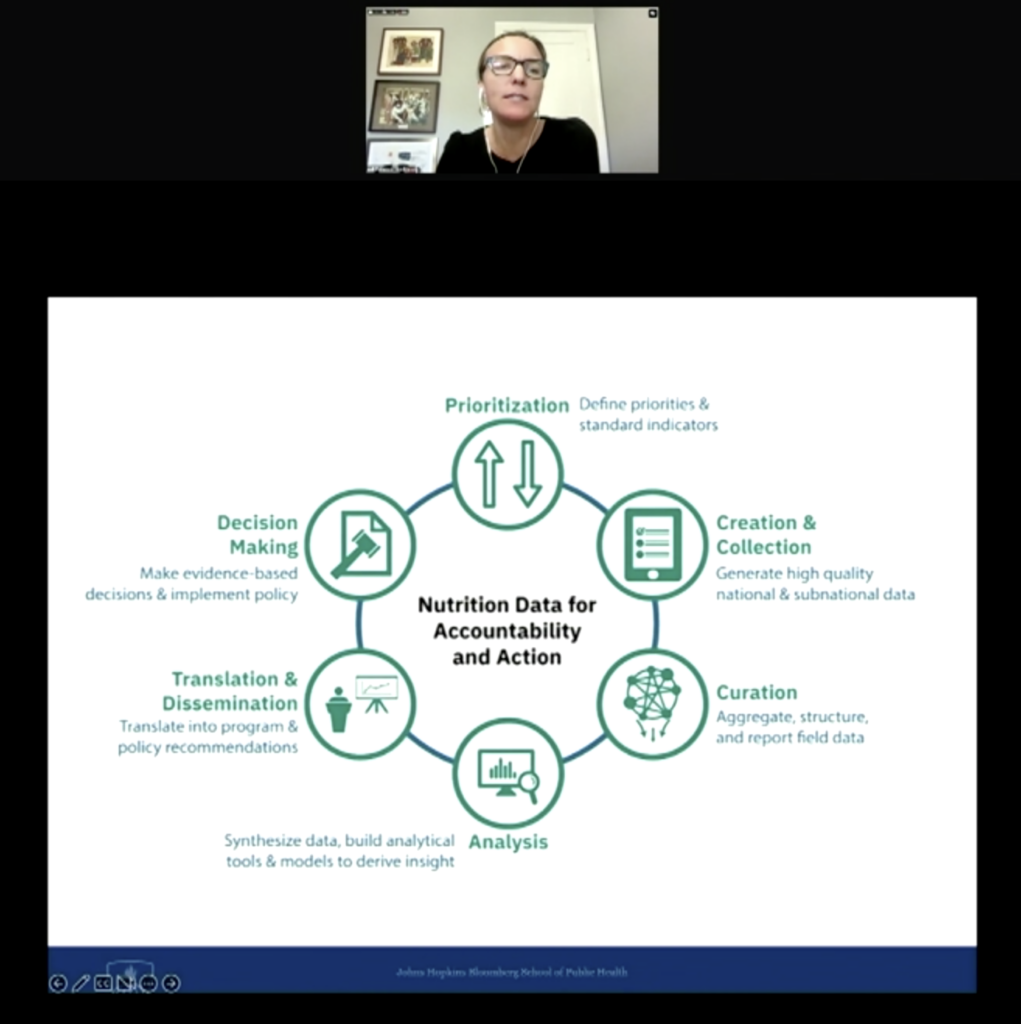
Rebecca also touched on the role that national advocacy networks play in using data and amplifying messages. She closed by reminding attendees that “Data are necessary but they are never sufficient to raise problems on agendas and inform policy responses. The human side of advocating for issues to be raised on policy agendas is really important.”
During the discussion periods at the end of Session V and the conference wrap-up, speakers and attendees debated how consensus in the framing of the double burden of malnutrition can be achieved so that problems not only gain priority but also move the global health community into action.
A recording of the full 2-day videocast is available here.
Let’s keep this conversation going. If you have any thoughts or comments on this discussion, we’d like to hear from you! Please send any feedback to: info@implementnutrition.com
Acknowledgements and Permission for Use: Thanks to NIH for providing permission to share the conference proceedings and link to the recording on our website.

